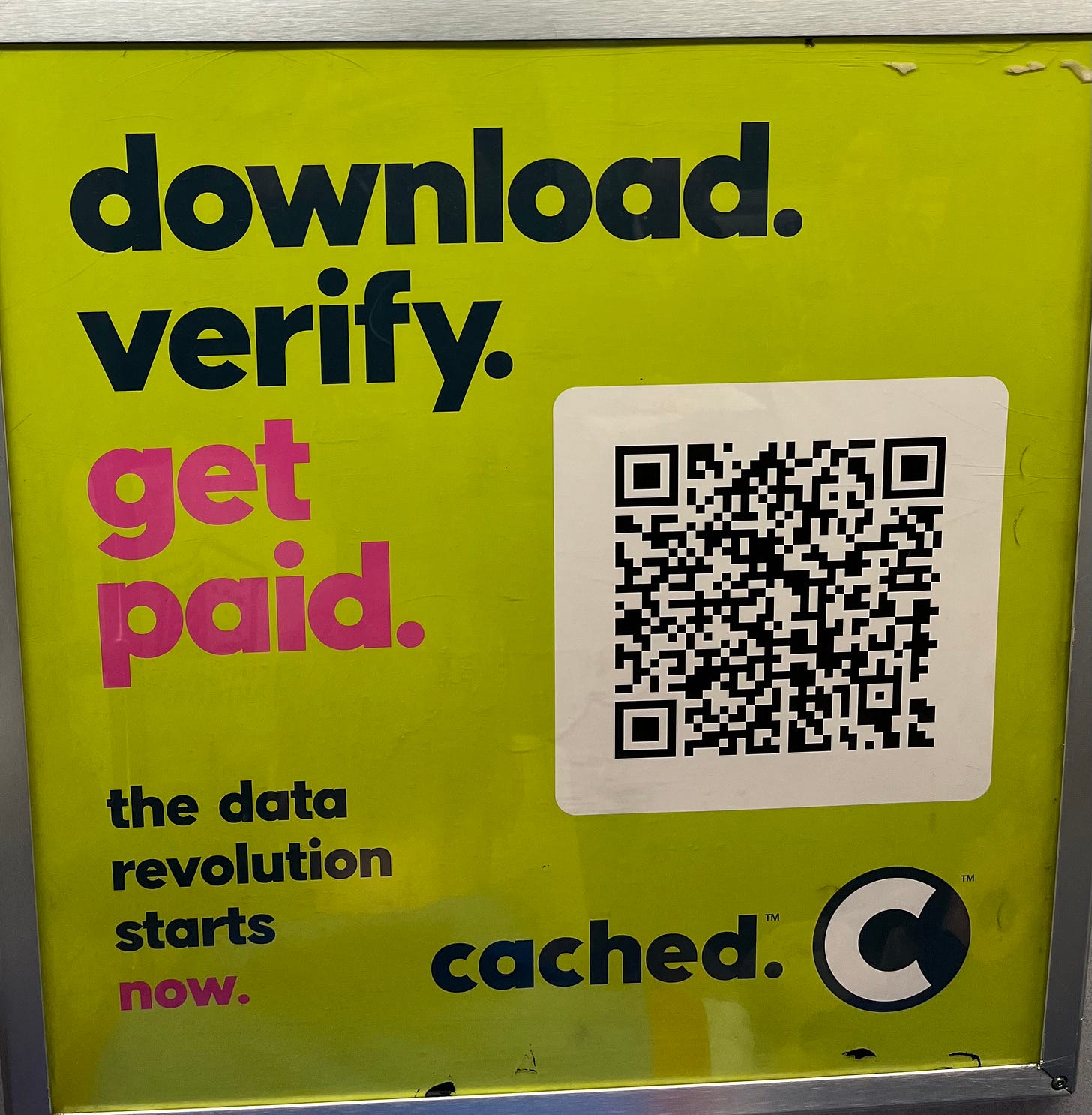I saw this ad on the subway recently.
The data revolution starts NOW.
It’s not an unusual ad, there’s been many like it for years now, but there’s something about the phrase “data revolution” that struck me, especially how they’re saying that now, in 2023, the data revolution is happening.
It got me thinking, why would it just be happening now? We’ve been living in this smart phone, everyone connected, digital data age for like 15 years now. We’ve heard lots of talk about how this new age of hyper data is going to change everything for a long time. And the fact that we’re still just being promised that in ads at this late date makes it clear that it never actually happened, and it isn’t about to happen now.
The truth is that data is dead. Everything we were promised about data, changing the world and creating all of these new opportunities and so on was just hype. I’m thinking about all the ways that data hype was used in the 2010s, and how all of it failed.
Y2K was the first time that some big data event was supposed to happen that would change society, and that was obviously fake, it was a data dystopia—but now they’ve been hyping some kind of data Utopia for years, and that’s equally fake.
In a sense Y2K did happen, but it wasn’t some data apocalypse that happened all at once—it happened over the last couple decades, and it hasn’t impacted our infrastructure the way they said Y2K would; rather it’s been a psychological and spiritual apocalypse, happening slowly, until now there’s barely anything left that can be called human.
You see the death of data in all kinds of ways. Like there was a big push around something called data journalism, in like 2012, as if that was gonna be the next big thing because it could be more reliable and so on. Journalism was going to be data driven. And that failed utterly.
Take a look at Nate Silver, the poster boy for data journalism. He got a huge contract from ESPN to make his own data journalism website, 538 dot com. I think it’s out of business now. Nobody believes in that shit anymore.
Of course, all the data said that Trump could never win, and that was dead wrong. And a big part of why smart liberals were so arrogant and caught so offguard was because they looked at the data and felt like that must be destiny. But it was completely wrong. And data was what everyone followed during Covid, and I think most people agree that the lockdown policies were wrong. A study from Johns Hopkins University researchers said that lockdowns were not worth it— and that really says something because that institution was very centrally involved in all of the lockdown policies early in the pandemic.
We used to hear a lot about how virtually all things were going to be “data driven.” But nothing is actually “data driven,” because the data points are just totally schizophrenic, all over the place, and don’t really add up to anything, and you would be crazy to try to have your strategy driven by the schizophrenic data points.
The phrase “data driven” is very interesting. What does it even mean? Is it supposed to be that you are driving around and using data to power you? Maybe. But I think what actually ended up happening is that we became hollowed out, just bodies without souls, vehicles for the data to drive us around. We drive the data around, we serve data, rather than the data serving us. You’re literally a body without a soul, a vehicle for the data to drive you around.
And data likes to move fast, so we move at the speed of data, since that is what’s driving us around. And I think the last decade, at least has been characterized by everything speeding up more than anything else. And it’s no accident.
The theorist Paul Virilio wrote about a concept called dromology in the late 1970s, and I think that predicted a lot of what I’m describing here. The term dromology comes from the Greek word dromos, which means racetrack. And that’s what life feels like now, you’re on a racetrack, being driven around by data at faster and faster speeds.
And like any race track, you have competitors, everyone else is your competition now, that’s one reason why it’s hard to build any kind of solidarity or social movement, because everyone views each other, as just competition, rather than someone to organize with in any meaningful way. People have fewer connections now, they’re tied to less and less now, because it makes them better vehicles to speed around doing the bidding of data.
So everything is a racetrack now, and a good racetrack should be narrow so you can move as efficiently as possible. The world is a lot narrower there now, you can see less, you’re just focused on your own little narrow track, and moving as fast as possible. And you’re moving so fast that anything you can see is a blur anyway—I think this is one reason why we are speeding to catastrophe, because we’re all blind to everything and the world disappears.
Life is a racetrack but there’s no finish line—we will find the finish line when we finally crash, which I think everyone can feel is in the process of happening...





We can only hope for "dark data" to fill up all digital spaces until liberal society cannot uphold the technology anymore. This collapse will reset into "post history" and data can be used as this overproduction weapon for good.